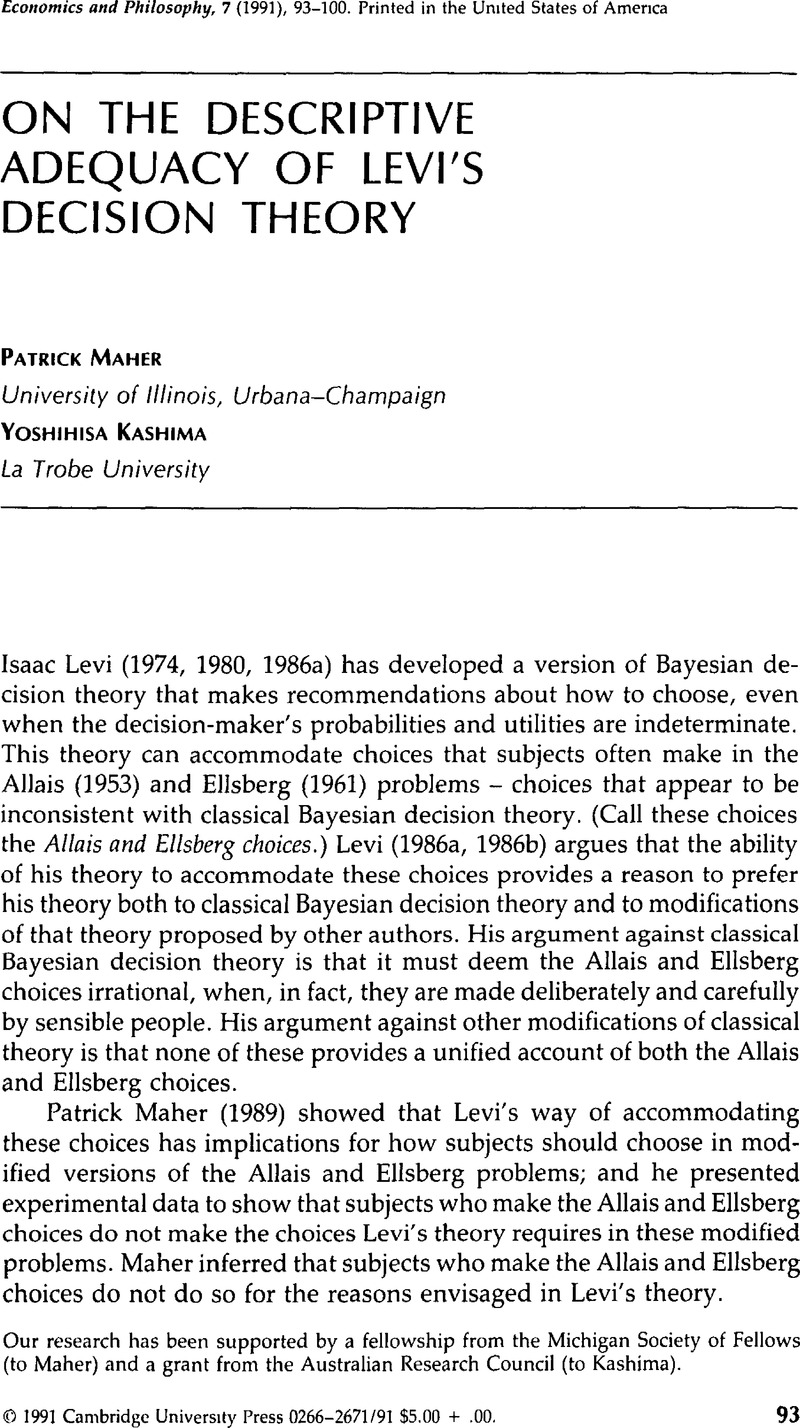Crossref Citations
This article has been cited by the following publications. This list is generated based on data provided by Crossref.
Levi, Isaac
1991.
Reply to Maher and Kashima.
Economics and Philosophy,
Vol. 7,
Issue. 1,
p.
101.
Steil, Benn
1993.
Corporate foreign exchange risk management: A study in decision making under uncertainty.
Journal of Behavioral Decision Making,
Vol. 6,
Issue. 1,
p.
1.
Kashima, Yoshihisa
and
Maher, Patrick
1995.
Framing of decisions under ambiguity.
Journal of Behavioral Decision Making,
Vol. 8,
Issue. 1,
p.
33.





